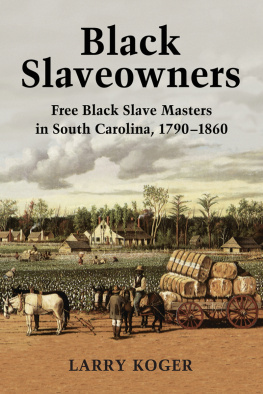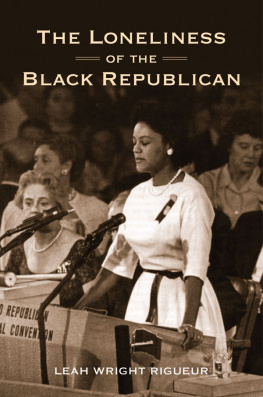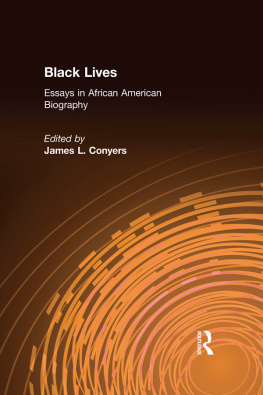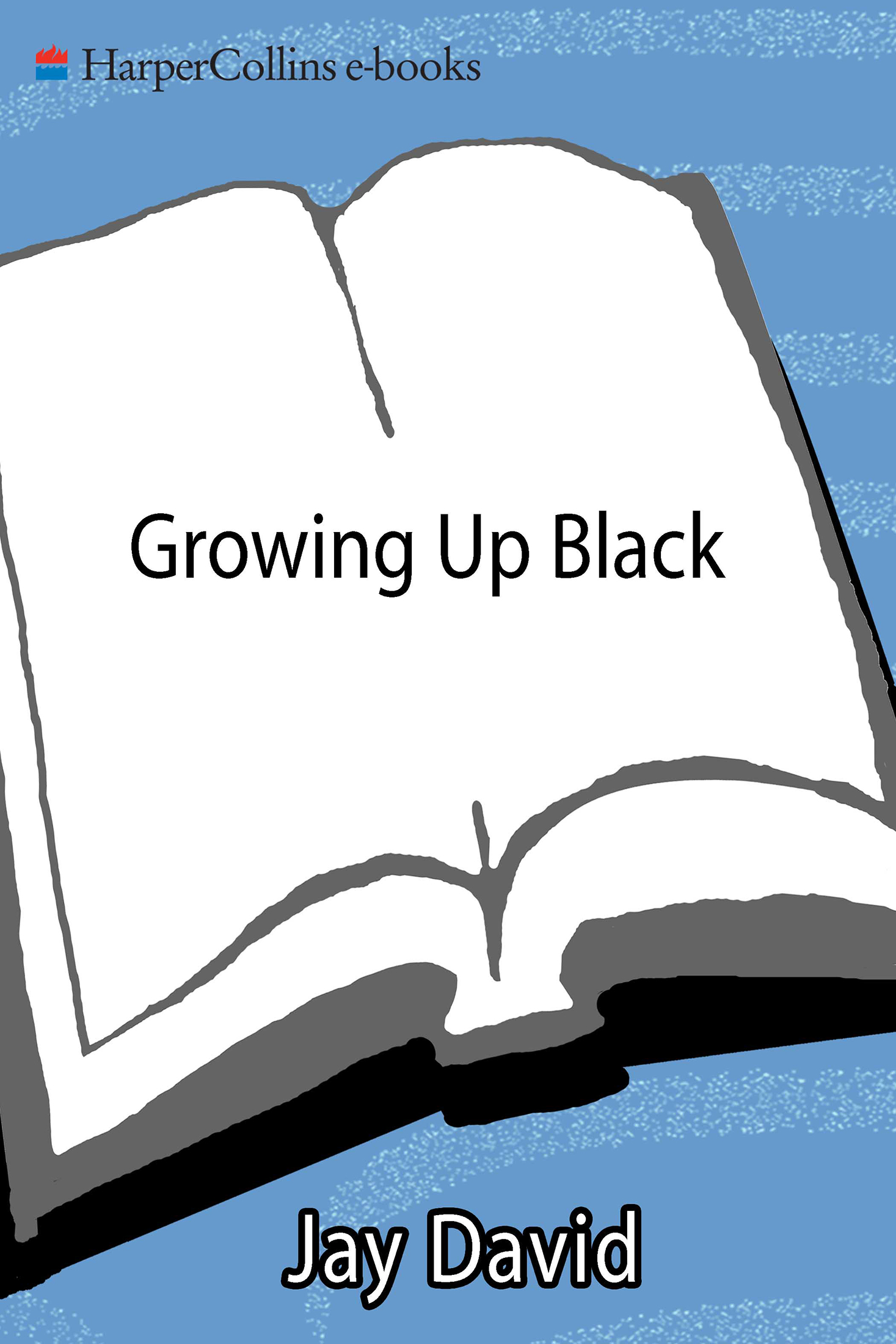P ROBABLY THE SINGLE MOST IMPORTANT EVENT IN THE LIFE OF ANY AFRICAN -American child is his recognition of his own coloredness, with all the implications of that fact. The realization can come as mild awareness that is taken in stride, or it can come as a rude shock that results in a trauma; but whatever the circumstances, a new understanding of the self influences the childs every thought and emotion from that day forth. Truly, he sees the world through different eyes, from a different perspective, with somewhat less of the innocence of his earlier years.
From A Man Called White
WALTER WHITE
(18931955)
Born a few years before the turn of the twentieth century, Walter White grew up in Atlanta, Georgia. His skin, like that of his parents, was so light that he could easily have passed for white. He never attempted to do so, even after the violent and bloody rioting in Atlanta in the fall of 1906 demonstrated what he had to look forward to as an African-American.
A college-educated journalist and civil rights leader, White spent most of his life trying to destroy racial prejudice.
There were nine light-skinned Negroes in my family: mother, father, five sisters, an older brother, George, and myself. The house in which I discovered what it meant to be a Negro was located on Houston Street, three blocks from the Candler Building, Atlantas first skyscraper, which bore the name of the ex-drug clerk who had become a millionaire from the sale of Coca-Cola. Below us lived none but Negroes; toward town all but a very few were white. Ours was an eight-room, two-story frame house which stood out in its surroundings not because of its opulence but by contrast with the drabness and unpaintedness of the other dwellings in a deteriorating neighborhood.
Only Father kept his house painted, the picket fence repaired, the board fence separating our place from those on either side whitewashed, the grass neatly trimmed, and flower beds abloom. Mothers passion for neatness was even more pronounced and it seemed to me that I was always the victim of her determination to see no single blade of grass longer than the others or any one of the pickets in the front fence less shiny with paint than its mates. This spic-and- spanness became increasingly apparent as the rest of the neighborhood became more down-at-heel, and resulted, as we were to learn, in sullen envy among some of our white neighbors. It was the violent expression of that resentment against a Negro family neater than themselves which set the pattern of our lives.
On a day in September 1906, when I was thirteen, we were taught that there is no isolation from life. The unseasonably oppressive heat of an Indian summer day hung like a steaming blanket over Atlanta. My sisters and I had casually commented upon the unusual quietness. It seemed to stay Mothers volubility and reduced Father, who was more taciturn, to monosyllables. But, as I remember it, no other sense of impending trouble impinged upon our consciousness.
I had read the inflammatory headlines in the Atlanta News and the more restrained one in the Atlanta Constitution which reported alleged rapes and other crimes committed by Negroes. But these were so standard and familiar that they madeas I look back on it nowlittle impression. The stories were more frequent, however, and consisted of eight-column streamers instead of the usual two- or four-column ones.
Father was a mail collector. His tour of duty was from three to eleven P.M . He made his rounds in a little cart into which one climbed from a step in the rear. I used to drive the cart for him from two until seven, leaving him at the point nearest our home on Houston Street, to return home either for study or sleep. That day Father decided that I should not go with him. I appealed to Mother, who thought it might be all right, provided Father sent me home before dark because, she said, I dont think they would dare start anything before nightfall. Father told me as we made the rounds that ominous rumors of a race riot that night were sweeping the town
During the afternoon preceding the riot little bands of sullen evil-looking men talked excitedly on street corners all over downtown Atlanta. Around seven oclock my father and I were driving toward a mail box at the corner of Peachtree and Houston Streets when there came from near-by Pryor Street a roar the like of which I had never heard before, but which sent a sensation of mingled fear and excitement coursing through my body. I asked permission of Father to go and see what the trouble was. He bluntly ordered me to stay in the cart. A little later we drove down Atlantas main business thoroughfare, Peachtree Street. Again we heard the terrifying cries, this time near at hand and coming toward us. We saw a lame Negro bootblack from Hemdons barber shop pathetically trying to outrun a mob of whites. Less than a hundred yards from us the chase ended. We saw clubs and fists descending to the accompaniment of savage shouting and cursing. Suddenly a voice cried, There goes another nigger! Its work done, the mob went after new prey. The body with the withered foot lay dead in a pool of blood on the street.
Fathers apprehension and mine steadily increased during the evening, although the fact that our skins were white kept us from attack. Another circumstance favored usthe mob had not yet grown violent enough to attack United States government property. But I could see Fathers relief when he punched the time clock at eleven P.M . and got into the cart to go home. He wanted to go the back way down Forsyth Street, but I begged him, in my childish excitement and ignorance, to drive down Marietta to Five Points, the heart of Atlantas business district, where the crowds were densest and the yells loudest. No sooner had we turned into Marietta Street, however, than we saw careening toward us an undertakers barouche. Crouched in the rear of the vehicle were three Negroes clinging to the sides of the carriage as it lunged and swerved. On the drivers seat crouched a white man, the reins held taut in his left hand. A huge whip was gripped in his right. Alternately he lashed the horses and, without looking backward, swung the whip in savage swoops in the faces of members of the mob as they lunged at the carriage determined to seize the three Negroes.






